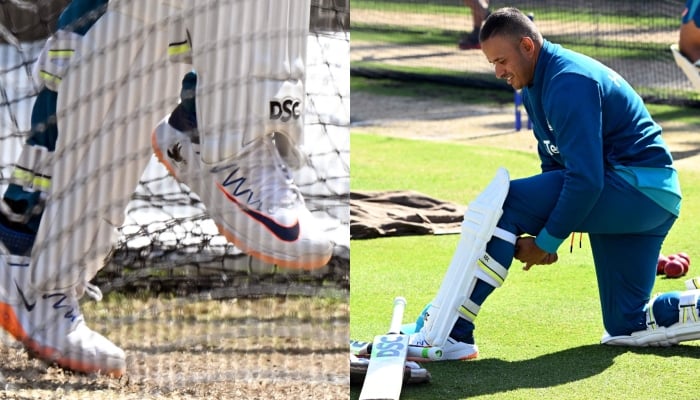
In a recent turn of events, the International Cricket Council (ICC) has rejected Usman Khawaja’s request to wear a peace dove sign on his bat and shoes during the second test against Pakistan. Khawaja, who gained attention for donning a black armband in solidarity with Gaza during the first test, faced scrutiny from the ICC for violating their dress code regulations. The cricketer had also written on his shoes, emphasizing the equality of all lives, prompting the ICC to charge him.
Despite Khawaja’s insistence that his actions were not driven by personal or political motives but rooted in a humanitarian concern for the plight of children in Gaza, the ICC maintained that such displays were against their regulations. Khawaja, however, did not back down and was spotted wearing the peace dove sign on his shoes during a practice match leading up to the second test.
The embellishment on Khawaja’s gear carried a powerful message in support of the Universal Declaration of Human Rights, stating,
“All human beings are born free and equal in dignity and rights. They are endowed with reason and conscience and should act towards one another in a spirit of brotherhood.”
This move by Khawaja underscores his unwavering commitment to championing human rights despite the ICC and Cricket Australia attempting to curtail his expression. Notably, the ICC does allow the wearing of black armbands during matches as a mark of respect for deceased individuals, but as per ICC, Khawaja’s case delves into the realm of personal expression and activism.
It is worth mentioning that Khawaja pointed out the ICC’s selective enforcement, citing instances where cricketers have not faced reprimands for similar acts without prior ICC approval. The controversy brings attention to the broader issue of athletes using their platform for social and political causes, a topic that continues to stir debate within the cricketing community.
Also, see:
PSL Broadcast Rights Bidding Delayed, Casting Shadow on Upcoming Season
